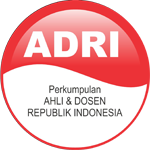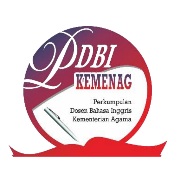The Dynamics of Mastering Multi-Foreign Languages: A Polyglot's Perspective
Abstract
The dynamics and challenges in mastering multiple foreign languages often need to be more detailed, especially from a polyglot's perspective. Therefore, this research aims to analyze the dynamics of mastering multiple foreign languages from the viewpoint of a polyglot who can communicate in six foreign languages. This research is expected to provide insight and inspiration for those who want to become a polyglot. This type of research is qualitative research with a descriptive method. The researcher collects data by interviews. The research subject is a polyglot who is 28 years old, mastering six foreign languages, consisting of Arabic, English, Korean, Chinese, Japanese, and German. The research concluded that the dynamics of mastering multiple foreign languages by a polyglot involve intrinsic motivation factors, consistency and determination, strategic approaches to learning, and strategies to maintain and expand mastery of foreign languages. Polyglot's obstacles in learning foreign languages include cognitive, psychological, and social aspects. However, these polyglots can respond to these challenges with proactive and ongoing strategies to strengthen and deepen their language fluency. This study is expected to provide a deeper understanding of the dynamic process of mastering multiple foreign languages from the perspective of a polyglot.
Keywords
Full Text:
PDFReferences
Al-Obaydi, L. H., Pikhart, M., & Shakki, F. (2023). Digital Gaming as a Panacea for Incidental L2 Acquisition in an EFL Context. Applied Research on English Language, 12(1), 73–94. https://doi.org/10.22108/ARE.2022.135344.2001
Arns, K. M. (2021). Multiple Intelligence in a Center Based Environment. International Journal of the Whole Child, 6(2), 1–17. https://files.eric.ed.gov/fulltext/EJ1328290.pdf
Calamlam, J. M. M. (2020). The Development of 21st-Century e-Learning Module Assessment Tool. Journal of Educational Technology Systems, 004723952095379. https://doi.org/10.1177/0047239520953792
Carvalho, I., & Sheppard, V. (2022). Memorable experiences in language travel. Tourism and Hospitality Research, 22(2), 149–163. https://doi.org/10.1177/14673584211013866
Carvalho, I., & Sheppard, V. (2023). A Language Learning Journey: What’s Left? and Where Next? International Journal of Hospitality and Tourism Administration, 24(2), 199–221. https://doi.org/10.1080/15256480.2021.1953424
Chen, C.-H. (2021). Second-Language Reading Process for Professional English: A Case Study. English Language Teaching, 14(9), 80. https://doi.org/10.5539/elt.v14n9p80
Demir, B., & Bahattin, H. (2022). Development of a New Language Learning Motivation Scale for Medical Students. İnsan ve Toplum Bilimleri Araştırmaları Dergisi, 11(4), 2289–2310. https://doi.org/10.15869/itobiad.1146278
Dwijonagoro, S., & Suparno, S. (2019). Pranatacara learning: Modeling, mind mapping, e-learning, or hybrid learning? Cakrawala Pendidikan, 38(1), 156–173. https://doi.org/10.21831/cp.v38i1.23034
Fu, J., & Wang, Y. (2022). Inspecting EFL teachers’ academic literacy development in multilingual contexts: A global vision. Heliyon, 8(12), e12143. https://doi.org/10.1016/j.heliyon.2022.e12143
Humble, D., Schweinberger, S. R., Mayer, A., Jesgarzewsky, T. L., Dobel, C., & Zäske, R. (2023). The Jena Voice Learning and Memory Test (JVLMT): A standardized tool for assessing the ability to learn and recognize voices. Behavior Research Methods, 55(3), 1352–1371. https://doi.org/10.3758/s13428-022-01818-3
Hwee, J., & Koh, L. (2019). Four Pedagogical Dimensions for Understanding Flipped Classroom Practices in Higher Education : A Systematic Review. 19(August), 14–33. https://doi.org/10.12738/estp.2019.4.002
Hyltenstam, K. (2021). Language aptitude and language awareness: Polyglot perspectives. Annual Review of Applied Linguistics, 41(May), 55–75. https://doi.org/10.1017/S0267190521000027
Kultti, A. (2022). Globalising early childhood education (GECE). International Journal of Multilingualism, 1(3), 1–11. https://doi.org/10.1080/14790718.2022.2074013
Lasmawan, I. W., & Budiarta, I. W. (2020). Vygotsky’s Zone Of Proximal Development and The Students’ Progress in Learning (A Heutagogcal Bibliographical Review). JPI (Jurnal Pendidikan Indonesia), 9(4), 545. https://doi.org/10.23887/jpi-undiksha.v9i4.29915
Macatuno-Nocom, N. (2022). Motivation and learning strategies on foreign language acquisition. South Florida Journal of Development, 3(2), 2885–2896. https://doi.org/10.46932/sfjdv3n2-102
Malik-Moraleda, S., Jouravlev, O., Mineroff, Z., Cucu, T., Taliaferro, M., Mahowald, K., Blank, I. A., & Fedorenko, E. (2023). Functional characterization of the language network of polyglots and hyperpolyglots with precision fMRI. BioRXiv, 1–27. https://www.biorxiv.org/content/10.1101/2023.01.19.524657v1
Martina, E. (2019). The Use of Dialects and Foreign Languages in Shakespeare’s King Henry V—Characteristics of the Fool Explored. English Studies, 100(7), 767–784. https://doi.org/10.1080/0013838X.2019.1604012
Massoudie. (2020). Strategic Self-Regulation (S2R) Among Multilingual Learners In Polyglot Indonesia Community. International Journal of Education and Social Science Research, 3(06), 127–143. https://ijessr.com
Meristo, M. (2022). University Students’ Motivation to Study the French Language: A Time Trend Study. Journal for the Psychology of Language Learning, 4(1), 1–14. https://doi.org/10.52598/jpll/4/1/4
Mulcaire, P., Kasai, J., & Smith, N. A. (2019). Polyglot contextual representations improve crosslingual transfer. NAACL HLT 2019 - 2019 Conference of the North American Chapter of the Association for Computational Linguistics: Human Language Technologies - Proceedings of the Conference, 3912–3918. https://doi.org/10.18653/v1/n19-1392
Nardo, A. (2021). Exploring a Vygotskian Theory of Education and Its Evolutionary Foundations. Educational Theory, 71(3), 331–352. https://doi.org/10.1111/edth.12485
Nurbaeti, N., Mayasari, A., & Arifudin, O. (2022). Penerapan Metode Bercerita Dalam Meningkatkan Literasi Anak Terhadap Mata Pelajaran Bahasa Indonesia. Jurnal Tahsinia, 3(2), 98–106. https://doi.org/10.57171/jt.v3i2.328
Papi, M., & Hiver, P. (2020). Language Learning Motivation as a Complex Dynamic System: A Global Perspective of Truth, Control, and Value. Modern Language Journal, 104(1), 209–232. https://doi.org/10.1111/modl.12624
Patrick, R. (2019). Comprehensible input and Krashen’s theory. Journal of Classics Teaching, 20(39), 37–44. https://doi.org/10.1017/S2058631019000060
Perdana, I. G., & Narayana, P. (2023). International Journal of Multicultural and Multireligious Understanding The Crucial Factors to Successfully Acquire a Target Language. International Journal of Multicultural and Multireligious Understanding, 10(6), 289–295. http://ijmmu.com%0Aeditor@ijmmu.com
Pikhart, M. (2020). Maintaining and Supporting Seniors’ Wellbeing through Foreign Language Learning: Psycholinguistics of Second Language Acquisition in Older Age. MDPI: Enviromental Research and Public Health, 1(1), 1–15. https://www.mdpi.com/1660-4601/17/21/8038
Pow Yean, C., Abdullah, N. A. T., Ahmad, N., Rahmat, N. H., Abdul Rashid, N. R., & Sharif, S. (2022). Exploring the Three Phases of Motivation in The Learning of Japanese as A Foreign Language. International Journal of Academic Research in Business and Social Sciences, 12(1), 1563–1583. https://doi.org/10.6007/ijarbss/v12-i1/12109
Preusse-burr, B., Staudt, B., Brink, G., & Buntich, J. (2023). Global Educational Transformation : How Inclusive Dual Language Immersion Practices Positively Impact Student Achievement and Socio-Intercultural Competence I nclusive DLI instruction at OB Gates Elementary School , Virginia. International Conference: The Future of Education, 1–4. https://conference.pixel-online.net/library_scheda.php?id_abs=5987
Rifa’i, A. M. (2021). Multilingual Dan Perkembangannya. Multilingual Dan Perkembangannya Dalam Perspektif Pendidikan, 14(1).
Sampietro, A., & Salmerón, L. (2021). Incivility in online news and Twitter: effects on attitudes toward scientific topics when reading in a second language. Language Sciences, 85, 101385. https://doi.org/10.1016/j.langsci.2021.101385
Shirahata, M., & Lahti, M. (2022). Language ideological landscapes for students in university language policies: inclusion, exclusion, or hierarchy. Current Issues in Language Planning. https://doi.org/10.1080/14664208.2022.2088165
Tai, T. Y., & Chen, H. H. J. (2020). The impact of Google Assistant on adolescent EFL learners’ willingness to communicate. Interactive Learning Environments, 0(0), 1–18. https://doi.org/10.1080/10494820.2020.1841801
Wei, L. (2023). Transformative pedagogy for inclusion and social justice through translanguaging, co-learning, and transpositioning. Language Teaching, 11(1), 1–12. https://doi.org/10.1017/S0261444823000186
Wen, Z., Yang, J., & Han, L. (2022). Do Polyglots Have Exceptional Language Aptitudes? Language Teaching Research Quarterly, 31(1), 53–66. https://doi.org/10.32038/LTRQ.2022.31.05
DOI: http://dx.doi.org/10.29240/ef.v7i2.8160
Refbacks
- There are currently no refbacks.
Copyright (c) 2023 Ihda Khairun Nisa, Dzulfikri Dzulfikri

This work is licensed under a Creative Commons Attribution-NonCommercial-ShareAlike 4.0 International License.
INDEXED BY:
 This work is licensed under a Creative Commons Attribution-NonCommercial-ShareAlike 4.0 International License
This work is licensed under a Creative Commons Attribution-NonCommercial-ShareAlike 4.0 International License
@ ENGLISH FRANCA : Academic Journal of English Language and Education
Jl. Dr. AK Gani No 1 Dusun Curup, Rejang Lebong Regency, Bengkulu Province, Indonesia, 39119.
Dr. Eka Apriani, M.Pd., email: efranca@iaincurup.ac.id, eka.apriani@iaincurup.ac.id.




.png)












